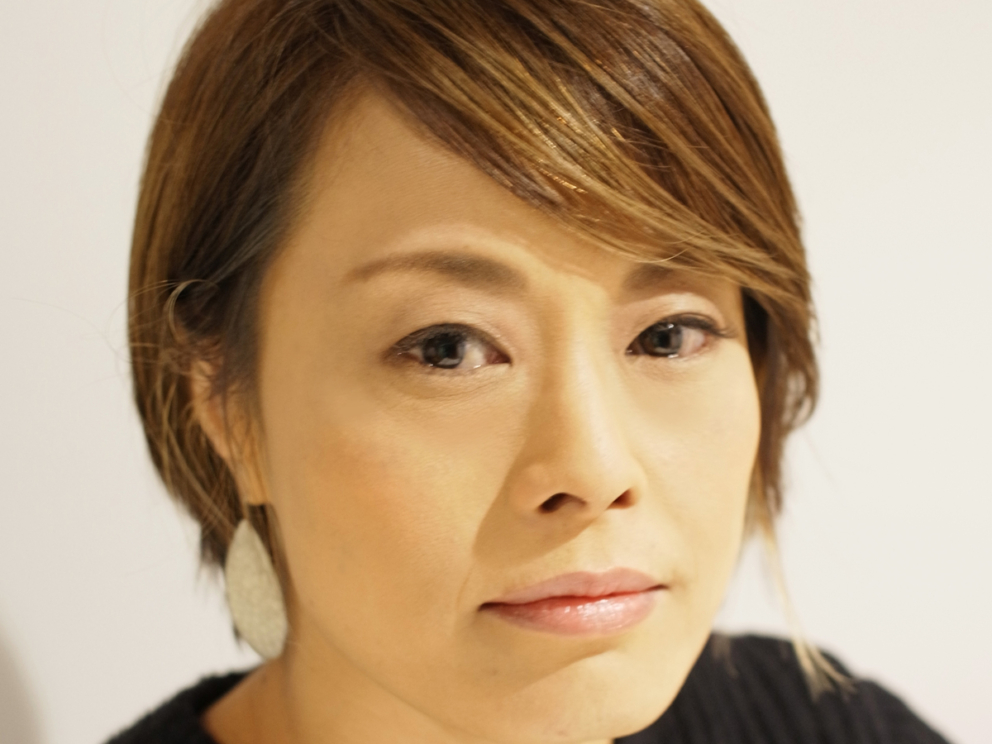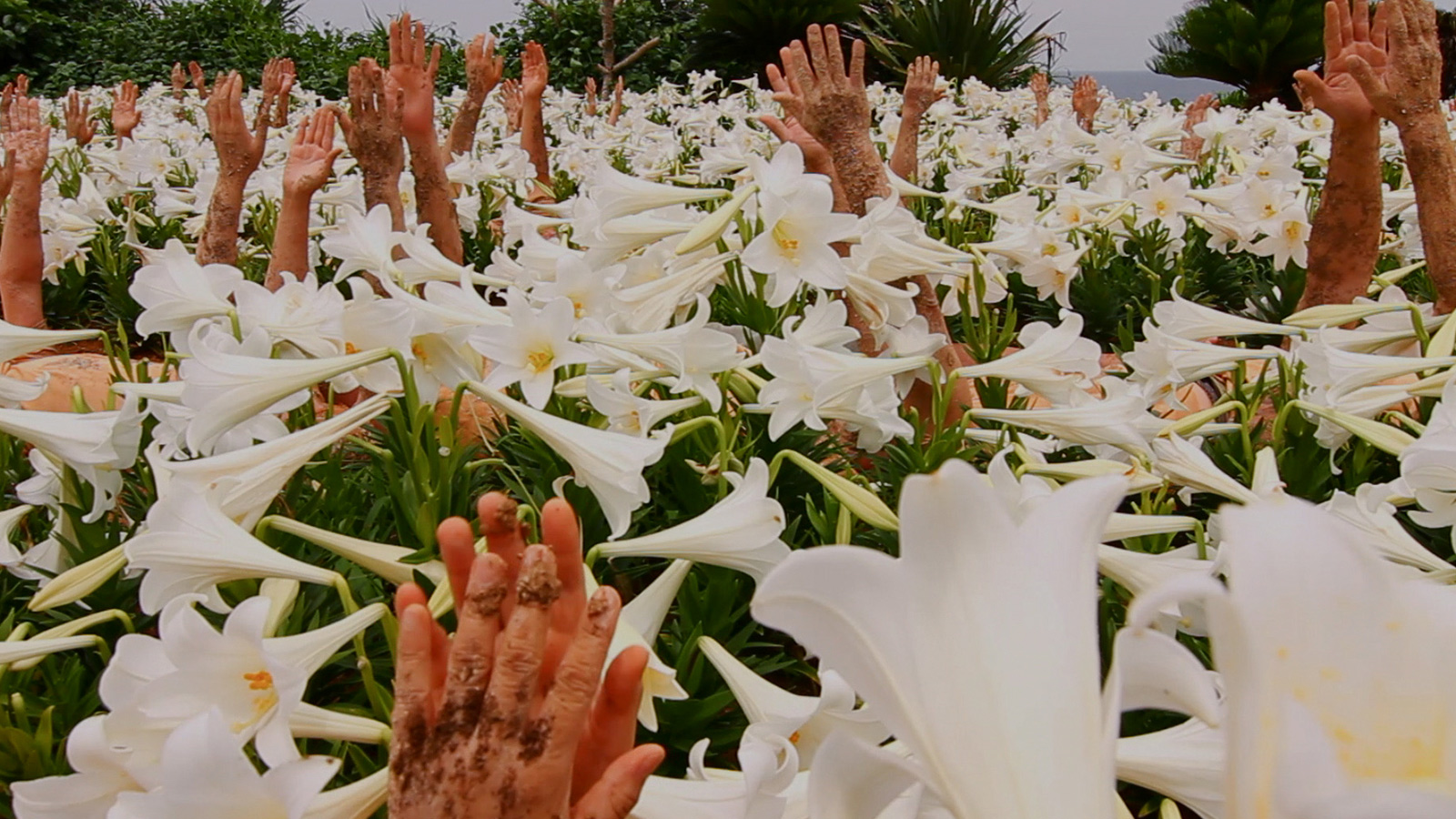Song of the Land, by Chikako Yamashiro
Event Slider
Date
- Sat,
- Closed on Tuesday
Location
Project Space Centro de Arte Moderna GulbenkianDate
- Sat,
- Closed on Tuesday
Location
Project Space Centro de Arte Moderna Gulbenkian‘Mud Man’ (2016), is a video installation set on Okinawa (Japan) and South Korea’s Jeju Islands, two locations at the center of local controversies surrounding the presence of the United States military.
Presented for the first time in Europe in its original 3 channel-version, the film tells the story of a community visited by bird droppings that resemble clumps of mud falling from the sky.
These droppings awaken the slumbering people, who pick the clumps up to listen to voices emanating from within, that speak of history and inheritance, nature and other communities.
Addressing the layers of historical memory contained in a particular territory, this work deals with the complexities in constructing identity as a community, concerning autonomy and agency.
In ‘Seaweed Woman’ (2008), Yamashiro mythologises herself as a creature of the sea to personify the political body of Okinawa.
Floating on the ocean covered with seaweed concealing and revealing parts of her body, this immersive work composed by projected photographs and video submerges the viewer in this mystical world, presenting a locally contested relocation of the American military base from her underwater perspective.
Yamashiro foregrounds ambiguous and fragmented visuals to invite multiple readings. Taking on others’ memories and strife through her own body, she attempts to leaven discourse about the history of Okinawa, Japan and all of East Asia.
Engawa – A Season of Contemporary Art from Japan
‘Engawa’ is a programming that brings to Lisbon a set of creators from Japan and the Japanese diaspora, many of them for the first time in Portugal. More info
Biographies
-

Chikako Yamashiro
Chikako Yamashiro (b. Okinawa, 1976) works in photography, video, and performance to create visual investigations into the history, politics, and culture of her homeland. Particularly, she explores themes related to the terrible civilian casualties incurred on the ground in Okinawa during World War II and the on-going troubles surrounding the U.S. military presence there. Her work has been presented at the National Museum of Modern Art (Tokyo), the Mori Art Museum (Tokyo), Jeju Museum of Art (South Korea) and the Contemporary Jewish Museum (San Francisco), among others. Participating film festivals include the Festival Film Dokumenter (FFD), in Yogyakarta (2017) and the International Short Film Festival Oberhausen (2018), where she was awarded the ZONTA Prize.
Credits
Support
The Calouste Gulbenkian Foundation reserves the right to collect and keep records of images, sounds and voice for the diffusion and preservation of the memory of its cultural and artistic activity. For further information, please contact us through the Information Request form.


